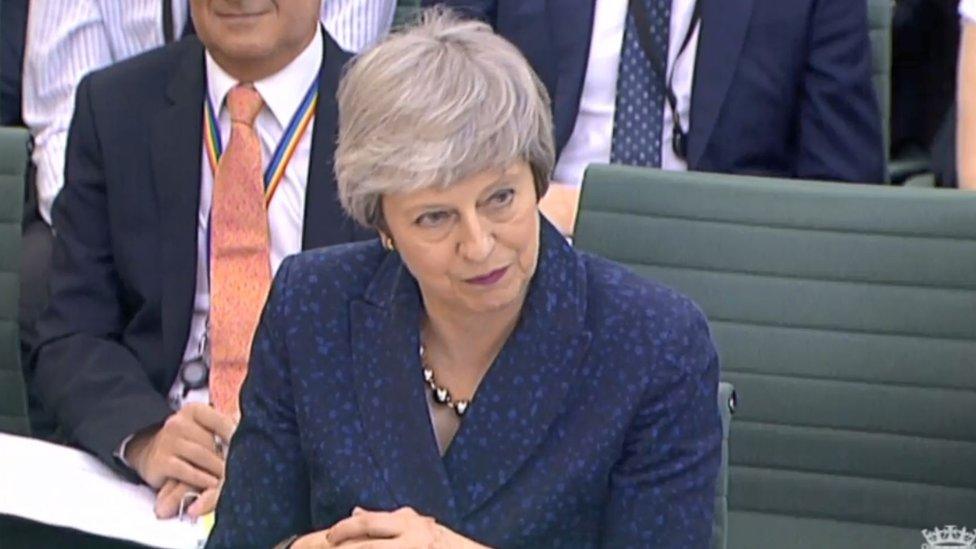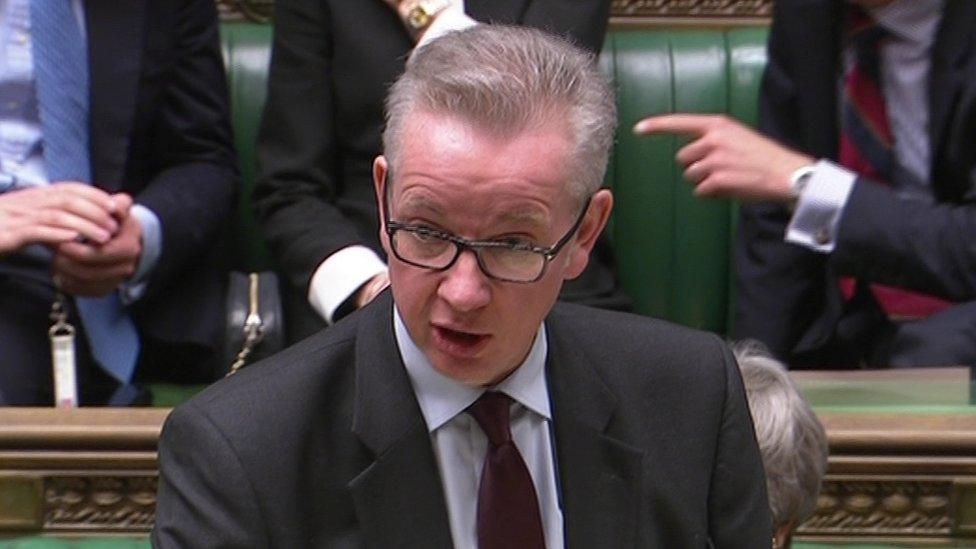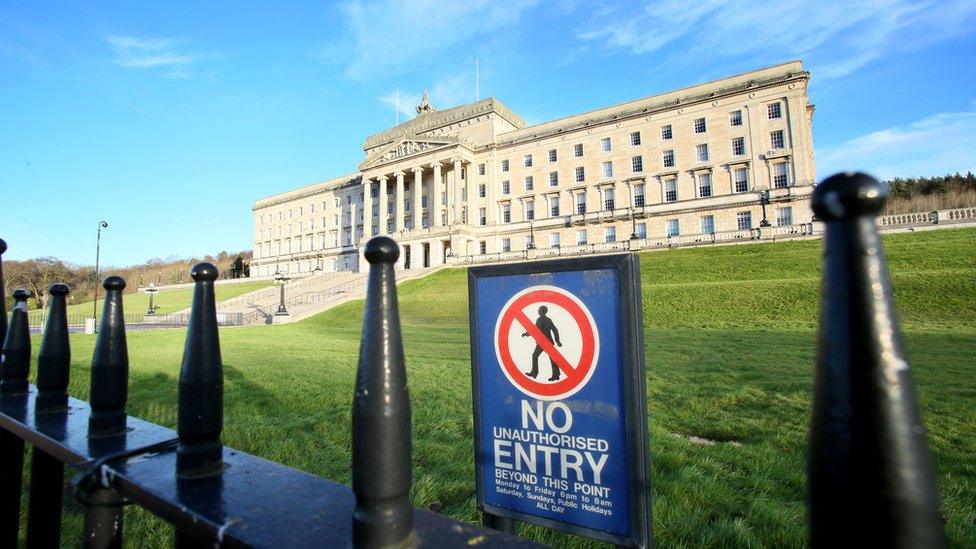Power-sharing talks: 'No need for direct rule if successful'
- Published

Theresa May was appearing before MPs in Westminster's Liaison Committee
Theresa May has said she hopes the success of new power-sharing talks at Stormont would remove the need for direct rule in a no-deal Brexit scenario.
In March, she warned Northern Ireland was unable to prepare fully for no-deal because of the collapse of devolution.
On Wednesday, she appeared before MPs on Westminster's Liaison Committee.
A new round of talks to restore devolution in Northern Ireland is due to start on 7 May.
The prime minister was answering questions about the ongoing Brexit process.
'Direct application of powers'
Northern Ireland has been without a functioning devolved government since January 2017, when the power-sharing parties split in a bitter row.
Mrs May has previously said a no-deal Brexit would require some "direct application of powers" from Westminster to Northern Ireland.
Since Stormont collapsed, civil servants have been taking some decisions in the absence of executive ministers.
But the prime minister has said the Northern Ireland Civil Service does not have the powers to take necessary decisions in the event of a no-deal Brexit.
On Wednesday she was asked by Conservative MP Andrew Murrison if enough preparations had been made for Northern Ireland, if a no-deal Brexit occurred.
The prime minister said she hoped the new talks process would enable the "reinstatement of the executive and the ability of the assembly to operate", to enable decisions to be taken locally.

Stormont has been in deep freeze since the political institutions collapsed in 2017
However, she added that she recognised that if that could not happen, there would need to be "some form of governance" encompassing "elements of direct rule" to ensure decisions could still be taken.
Ongoing negotiations
The government is currently in talks with Labour to try and find a compromise in order to get a Brexit deal through Parliament.
Some Conservative MPs are unhappy with the idea of cross-party talks and have urged the government to look at alternative arrangements to the Irish border backstop.
The backstop is the insurance policy designed to ensure the Irish border remains open in the event that the UK leaves the EU without securing an all-encompassing deal.
Mrs May told the committee "a lot of work" had been done on this issue, and that she believed there was an opportunity for the UK to introduce "world-leading" methods of technology to ensure the border remained frictionless.
Trade experts have repeatedly said there is no solution or technology that has been created or exists currently to deal with the uniqueness of the Irish border.
She said it was important for the government to look at "new models".
The prime minister also refused to comment on Mr Murrison's suggestion that the Irish border issue had been used "inappropriately" by Brussels in the negotiations.
She said it was "incumbent" on the government to recognise the importance of resolving the Irish border issue, and that she believed if MPs had got behind her deal in March, the UK would not be in the stalemate it currently finds itself in.
- Published13 March 2019

- Published31 March 2019
